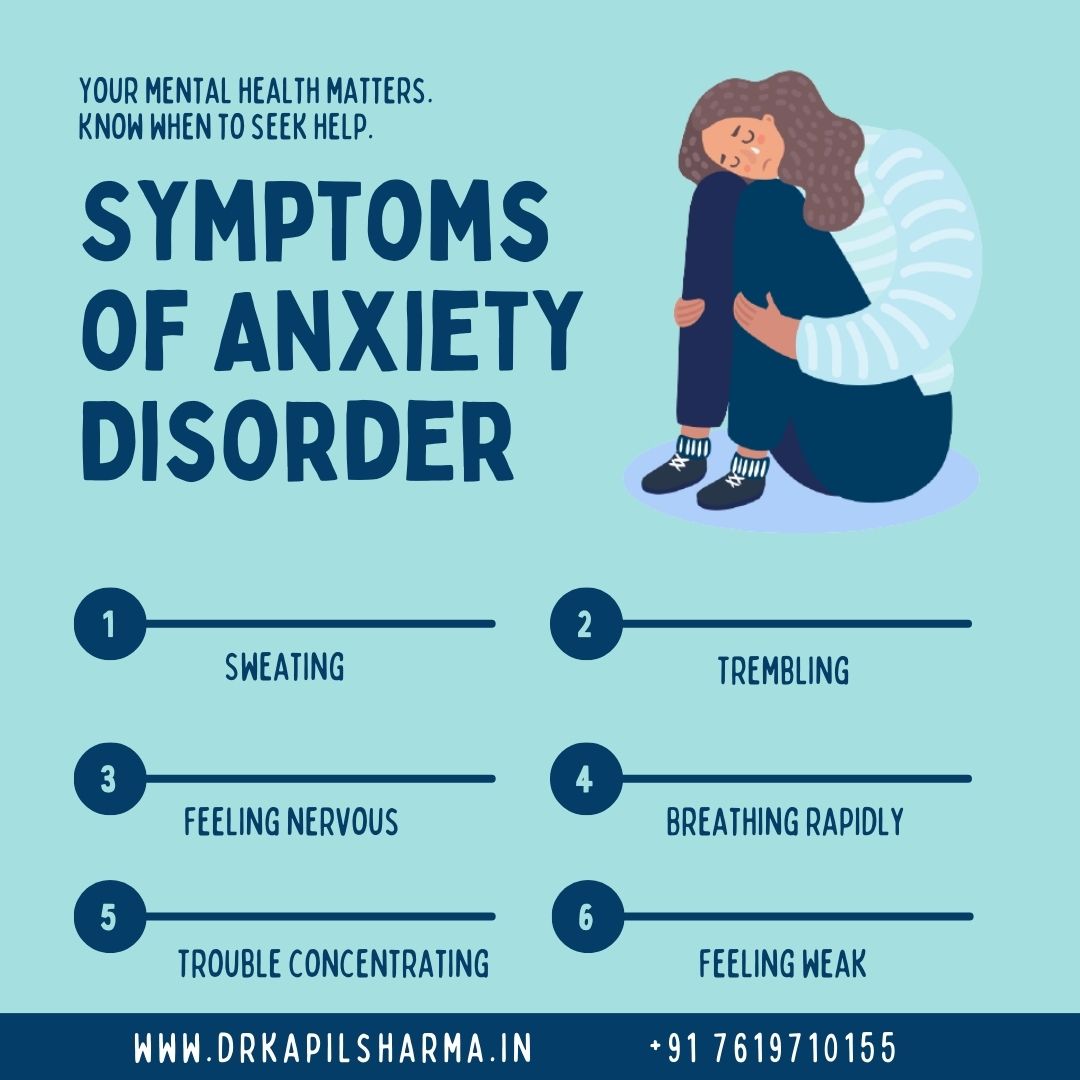
Anxiety in Children and Adolescents: Signs, Symptoms | Anxiety Treatment
Anxiety is a common issue among children and adolescents. It can affect their daily lives, including school, friendships, and family interactions. Understanding anxiety, recognizing its signs and symptoms, and knowing how to treat it can help support young people through their challenges. If your child is struggling with anxiety, consulting the best psychiatrist doctor in Jaipur might be a beneficial step.
What is Anxiety?
Anxiety is a feeling of worry, nervousness, or unease about something with an uncertain outcome. It is a normal reaction to stress and can be helpful in some situations, like preparing for a test or an important event. However, when anxiety becomes overwhelming or persistent, it may interfere with a child’s or adolescent’s ability to function normally.
Signs and Symptoms of Anxiety
- Physical Symptoms:
- Headaches: Frequent or severe headaches can be a sign of anxiety.
- Stomachaches: Anxiety can lead to stomach problems or frequent stomachaches.
- Muscle Tension: Children may complain of muscle aches or feel tense and restless.
- Fatigue: Feeling unusually tired or exhausted without a clear reason.
- Emotional Symptoms:
- Excessive Worrying: Constant worry about various aspects of life, such as school performance or social interactions.
- Irritability: Children may become easily frustrated or irritable.
- Fearfulness: Intense fear of specific situations or objects, like going to school or meeting new people.
- Behavioral Symptoms:
- Avoidance: Avoiding places, activities, or people that trigger anxiety.
- Social Withdrawal: Preferring to stay alone rather than participating in social activities.
- Difficulty Concentrating: Struggling to focus on tasks or becoming easily distracted.
Common Types of Anxiety in Children and Adolescents
- Generalized Anxiety Disorder (GAD): Characterized by excessive worry about various aspects of life, such as academics, family issues, or future events.
- Social Anxiety Disorder: Fear of social situations or being judged by others, leading to avoidance of social interactions.
- Separation Anxiety Disorder: Intense fear of being separated from parents or caregivers, often resulting in distress when apart.
- Specific Phobias: Extreme fear of specific objects or situations, such as heights, spiders, or flying.
Causes of Anxiety
Several factors can contribute to anxiety in children and adolescents:
- Genetics: Anxiety can run in families. If a parent or close family member has anxiety, a child may be more likely to develop it.
- Environment: Stressful life events, such as moving to a new place, family conflicts, or experiencing trauma, can trigger anxiety.
- Brain Chemistry: Imbalances in brain chemicals or neurotransmitters can affect how a child processes stress and anxiety.
- Personality Traits: Children with certain personality traits, such as being perfectionists or highly sensitive, may be more prone to anxiety.
Treatment for Anxiety
- Therapy:
- Cognitive Behavioral Therapy (CBT): This type of therapy helps children understand and change negative thought patterns and behaviors that contribute to anxiety.
- Play Therapy: For younger children, play therapy uses games and activities to help them express and manage their feelings.
- Medication:
- Antidepressants: Some medications can help reduce anxiety symptoms. They are usually prescribed by a doctor if therapy alone is not effective.
- Anti-Anxiety Medications: These are less commonly prescribed for children but may be used in certain cases.
- Lifestyle Changes:
- Healthy Diet: A balanced diet with nutritious foods can help improve overall well-being.
- Regular Exercise: Physical activity can reduce stress and improve mood.
- Adequate Sleep: Ensuring a regular sleep schedule and enough rest is important for managing anxiety.
- Support and Education:
- Parental Support: Parents can play a crucial role by providing reassurance, understanding, and encouragement.
- School Support: Teachers and school counselors can help create a supportive environment and accommodate any special needs.
For tailored treatment, consider consulting the anxiety treatment doctor in Jaipur, who can offer specialized care for anxiety in children and adolescents.
Helping Your Child Manage Anxiety
- Open Communication: Encourage your child to talk about their feelings and worries. Listen without judgment and provide support.
- Set Realistic Goals: Help your child set achievable goals and celebrate their successes to build confidence.
- Encourage Relaxation Techniques: Teach your child relaxation techniques, such as deep breathing exercises or mindfulness, to manage stress.
- Seek Professional Help: If anxiety is affecting your child’s daily life, consider seeking help from a mental health professional who specializes in working with children and adolescents.
Conclusion
Anxiety in children and adolescents is a common issue that can be managed effectively with the right support and treatment. By recognizing the signs, understanding the causes, and exploring treatment options, parents, caregivers, and educators can help young people navigate their anxiety and lead fulfilling lives. If you suspect that your child is struggling with anxiety, consulting the anxiety treatment doctor in Jaipur is a valuable step toward ensuring they receive the appropriate support and care they need.
Visit Our Location – https://maps.app.goo.gl/g5vZXR8Wu3rwFUEaA

